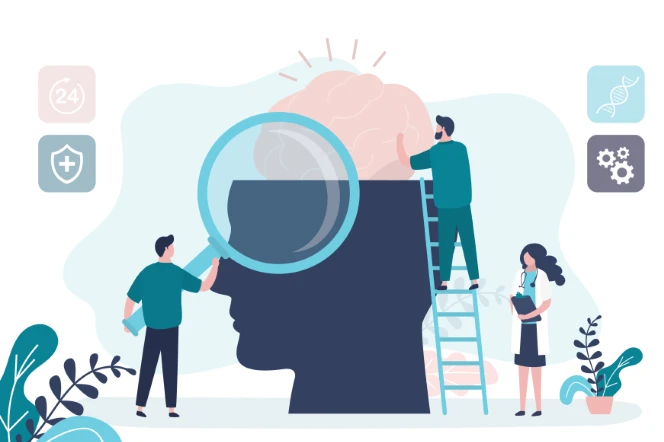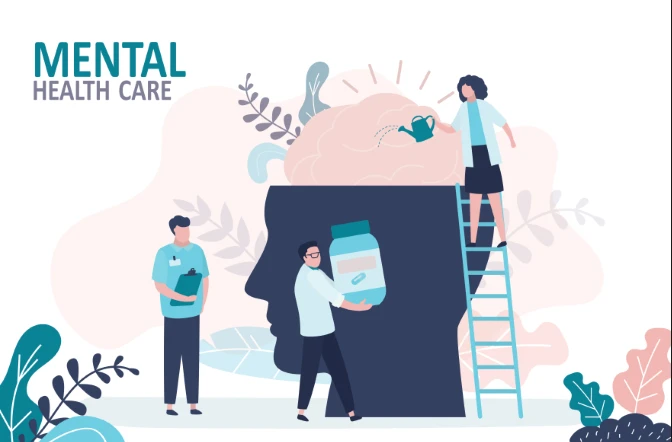Mental health
Taking Control: A Practical Guide to Managing Your Mental Health
Mental health affects every aspect of your life, from your relationships to your career performance. Yet many people struggle in silence, unsure of where to turn for help or how to begin improving their wellbeing. The good news is that effective mental health management is within reach, and you don't have to navigate this journey alone.
Understanding your mental health needs is the first step toward creating lasting positive change. Whether you're dealing with stress, anxiety, depression, or simply want to maintain good mental wellness, there are proven strategies that can help you feel more balanced and resilient.
Why Mental Health Management Matters
Your mental health influences everything you do. When you're struggling emotionally, it becomes harder to concentrate at work, maintain healthy relationships, or enjoy activities you once loved. Poor mental health can also impact your physical wellbeing, leading to sleep problems, weakened immunity, and increased risk of chronic diseases.
Taking an active role in managing your mental health helps you build resilience against life's challenges. You'll develop better coping skills, improve your emotional regulation, and create a stronger foundation for overall wellness.
Building Your Mental Health Toolkit
Professional Support
Working with a mental health professional remains one of the most effective approaches to managing mental health concerns. Therapists can help you identify triggers, develop coping strategies, and work through underlying issues that may be affecting your wellbeing.
If you're unsure where to start, consider reaching out to your primary care physician for referrals. Many employers also offer employee assistance programs that provide free counseling services.
Mental Health Exercises That Work
Regular mental health exercises can significantly improve your emotional wellbeing. These practices help you develop greater self-awareness and emotional regulation skills.
Mindfulness meditation is one of the most researched mental health exercises. Even 10 minutes daily can reduce stress and anxiety while improving focus and emotional stability. Start with guided meditations using apps or online resources.
Journaling provides a powerful outlet for processing emotions and thoughts. Write freely for 10-15 minutes each day, focusing on whatever comes to mind. This practice helps you identify patterns in your thinking and emotional responses.
Progressive muscle relaxation involves tensing and releasing different muscle groups to reduce physical tension and mental stress. This technique is particularly helpful for managing anxiety and improving sleep quality.
Gratitude exercises shift your focus toward positive aspects of your life. Each day, write down three things you're grateful for and why they matter to you. This simple practice can improve mood and overall life satisfaction.
Technology as Your Ally: Best Mental Health Apps
Digital tools have revolutionized mental health support, making professional-grade resources accessible anytime, anywhere. The best mental health apps combine evidence-based techniques with user-friendly interfaces.
Headspace offers guided meditations, sleep stories, and mindfulness exercises tailored to different needs and experience levels. Their structured programs make it easy to build consistent meditation habits.
Calm provides meditation sessions, breathing exercises, and relaxation techniques. Their daily programs and sleep stories have helped millions of users manage stress and improve sleep quality.
Sanvello combines mood tracking, guided meditations, and cognitive behavioral therapy techniques. The app helps you identify thought patterns and develop healthier coping strategies.
BetterHelp connects you with licensed therapists for online counseling sessions. While not free, it offers convenient access to professional support for those who prefer digital therapy options.
Addressing Men and Mental Health
Men face unique challenges when it comes to mental health. Social expectations often discourage men from expressing vulnerability or seeking help, leading to higher rates of undiagnosed depression and anxiety.
Breaking the stigma starts with recognizing that seeking help demonstrates strength, not weakness. Mental health struggles don't discriminate based on gender, and addressing them early prevents more serious problems later.
Male-specific symptoms can include increased anger, irritability, risk-taking behavior, and substance abuse. Men may also experience physical symptoms like headaches, digestive issues, or chronic pain without recognizing the connection to mental health.
Finding the right support matters. Some men prefer individual therapy, while others benefit from men's support groups or online communities. The key is finding an approach that feels comfortable and sustainable.
Creating Your Personal Action Plan
Start small and build momentum. Choose one or two strategies that resonate with you and commit to practicing them consistently for at least two weeks. This might mean downloading one of the best mental health apps and using it daily, or incorporating simple mental health exercises into your routine.
Track your progress using a journal or mood-tracking app. Notice patterns in your mental health and celebrate small improvements. Remember that managing mental health is an ongoing process, not a destination.
Consider your support network. Share your goals with trusted friends or family members who can provide encouragement and accountability. Don't hesitate to seek professional help if you're struggling with persistent symptoms.
Moving Forward with Confidence
Taking control of your mental health requires commitment and patience, but the benefits extend far beyond emotional wellbeing. You'll find yourself better equipped to handle stress, more present in your relationships, and more resilient when facing life's inevitable challenges.
Remember that asking for help is a sign of wisdom, not weakness. Whether you're exploring the best mental health apps, working with a therapist, or practicing mental health exercises, you're taking important steps toward a healthier, more fulfilling life.


